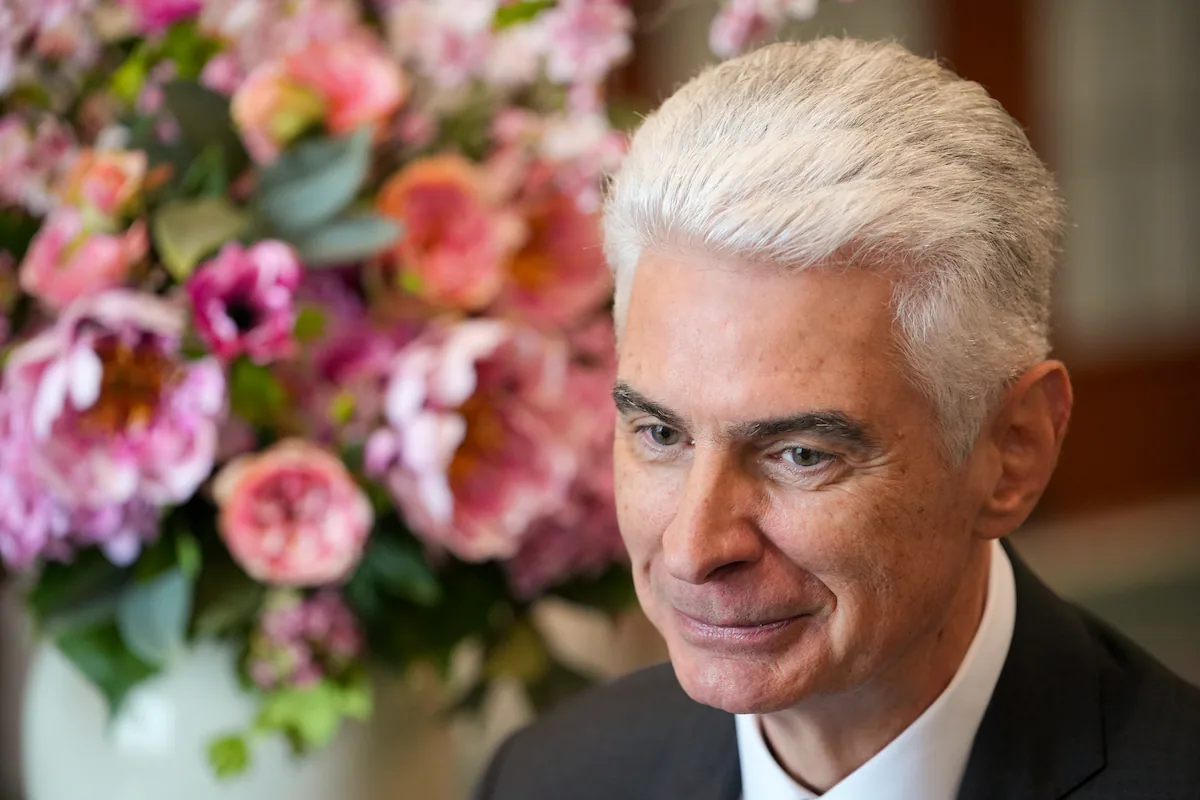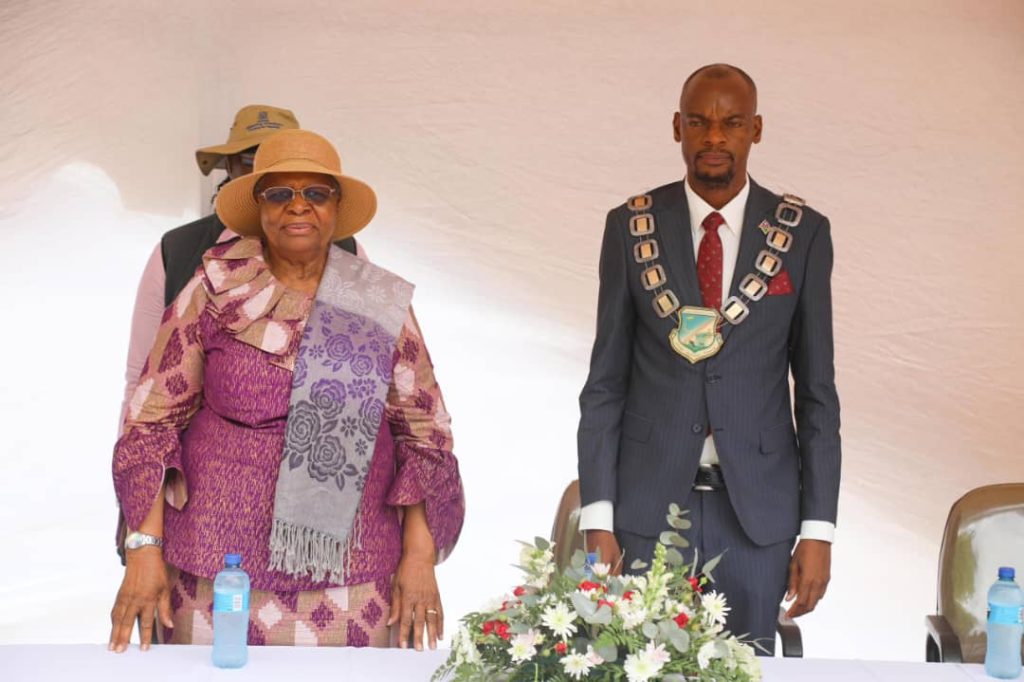Copyright Salt Lake Tribune

The Church of Jesus Christ of Latter-day Saints announced this week that Gérald Caussé, a French businessman, will fill the vacancy in the Quorum of the Twelve Apostles. I was glad when I heard about the appointment. I told friends the news was zero percent surprising but also welcome. Let’s get the first part out of the way: Why wasn’t this a surprise? It used to be that the church sometimes called men with little church administration experience to become apostles. For example, Thomas S. Monson was 36 years old when he was called in the early 1960s. But the more recent strategy has been to promote only from within the upper echelons of leadership. By the time they become apostles, these men have usually served at church headquarters for years, even decades. In recent years, most apostles have come from either the Presidency of the Seventy (Patrick Kearon, Ulisses Soares, Gerrit W. Gong and Ronald A. Rasband) or the presiding bishopric (Gary E. Stevenson and Caussé). In fact, of the seven apostles appointed in the past decade, only one did not first serve in the Presiding Bishopric or the Presidency of the Seventy, Dale G. Renlund. So Caussé’s appointment is not surprising because he’s already been serving in one of the two top levels just below the apostles. Also, the 62-year-old Caussé is exactly the right age. Or at least, he’s the right age for recent apostle precedents. Nowadays, most are in their early 60s when they are called. In fact, if we’re again only looking at the seven who have been appointed within the past decade, only one was not in his early 60s. (But he was 59 and a half, so we’re not exactly swinging far out into left field with that example.) Caussé lands right in the church’s preferred 60-65 sweet spot. So in age and experience, he’s a safe and predictable choice. He has also spent years now minding the store of the church’s vast wealth, which a 2024 outside analysis estimated at nearly $300 billion in investments, real estate and other assets. And, yeah, that’s $300 billion with a B. I’ve written before about how a whistleblower’s revelations about the church’s finances had severely challenged my faith in the institution and why I now pay my tithing to charities that directly help the poor. The church and its investment arm, Ensign Peak Advisers, have since paid a total of $5 million in fines to the Securities and Exchange Commission in the United States for failing in the past to accurately disclose the U.S. stock market portion of its wealth. Actually, they were fined not just for failing to report but for actively trying to hide the enormity of their investment portfolio by creating a variety of “clone” LLCs. Ten years ago this week, according to the SEC report, the “senior leadership of the church approved Ensign Peak’s recommendation to ‘gradually and carefully adapt Ensign Peak’s corporate structure to strengthen the portfolio’s confidentiality.’” The long and the short of all that is, as a church member, a part of me is reluctant to trust Caussé or any other leader who approved of hiding the church’s assets. He became the church’s presiding bishop in October 2015, just weeks before church leaders apparently approved of Ensign Peak’s plan to conceal its assets. In other words, Caussé didn’t personally create that plan, but it was implemented under his watch. I find that troublesome. On the other hand, there’s nothing I dislike about him. Here’s why his calling is welcome news: I don’t have to brace myself at General Conference when he speaks, worried that he’s going to marginalize gay people or anyone else. In fact, his talks through the years have strongly emphasized the importance of welcoming others, making church a safe space for a wide array of people. “Unity is not achieved by ignoring and isolating members who seem to be different or weaker, and only associating with people who are like us,” he said in 2013 in his second-ever conference talk. He has stood up for refugees and made the case that Latter-day Saints should be good stewards of the environment, neither of which is a politically popular stance at the moment, at least in the U.S. I applaud him for that. He has also directed a larger percentage of the church’s riches to helping the poor. During his time as the presiding bishop, the church has significantly increased its global aid, which reached a record $1.45 billion in 2024. We can and should do more, but it’s a good beginning. Caussé also strikes me as a genuinely good human being. I like the guy, and I appreciate that he’s one of the few General Conference speakers who seems to have a sense of humor. He seems to have a heart for helping others. My sentiment was confirmed when, after the church’s announcement, I took to Facebook to ask friends what they thought. And here’s the thing: In my wide network of current and former Saints, from the most “all-in” believers to the most “all-out” ex-members, no one had a bad word to say about the man. Several people, current and former members, knew him personally and shared stories of his kindness. And at the end of the day, that is the church to me. As Caussé himself once expressed in one of his conference talks, the church is defined by its people. He shared that when he was a stake president in France, he started his tenure as a leader with big dreams: “I had in mind some very ambitious goals for the stake: the creation of new wards, the building of new meetinghouses, and even the construction of a temple in our area. When I was released six years later, not one of these objectives had been achieved. This could have felt like a complete failure except that, during the course of those six years, my objectives had become quite different. “As I sat on the stand on the day of my release, I was overwhelmed by a profound sense of gratitude and accomplishment. I looked at the faces of the hundreds of members in attendance. I could recall a spiritual experience connected with each one of them.” I appreciated the relative vulnerability of this statement: It’s all too rare in the church for leaders to concede that we aren’t firing on all cylinders. More baptisms. More young people. Growth, growth, growth. I suspect that such admissions and theological reinterpretations of the purpose of the church will become more common in the years ahead, because in the current tough climate for religion it’s getting harder for the institution to claim unparalleled success using the same metrics of the past. As a church leader in Europe, where the church’s growth has mostly stagnated, Caussé had a front-row seat to the shifts that are only now hitting the heart of Utah’s Zion. But membership charts with upward-aiming arrows aren’t the point and never have been. The point has been, always, to build a people who want to follow Jesus. And I think Caussé can help us get closer to that.



